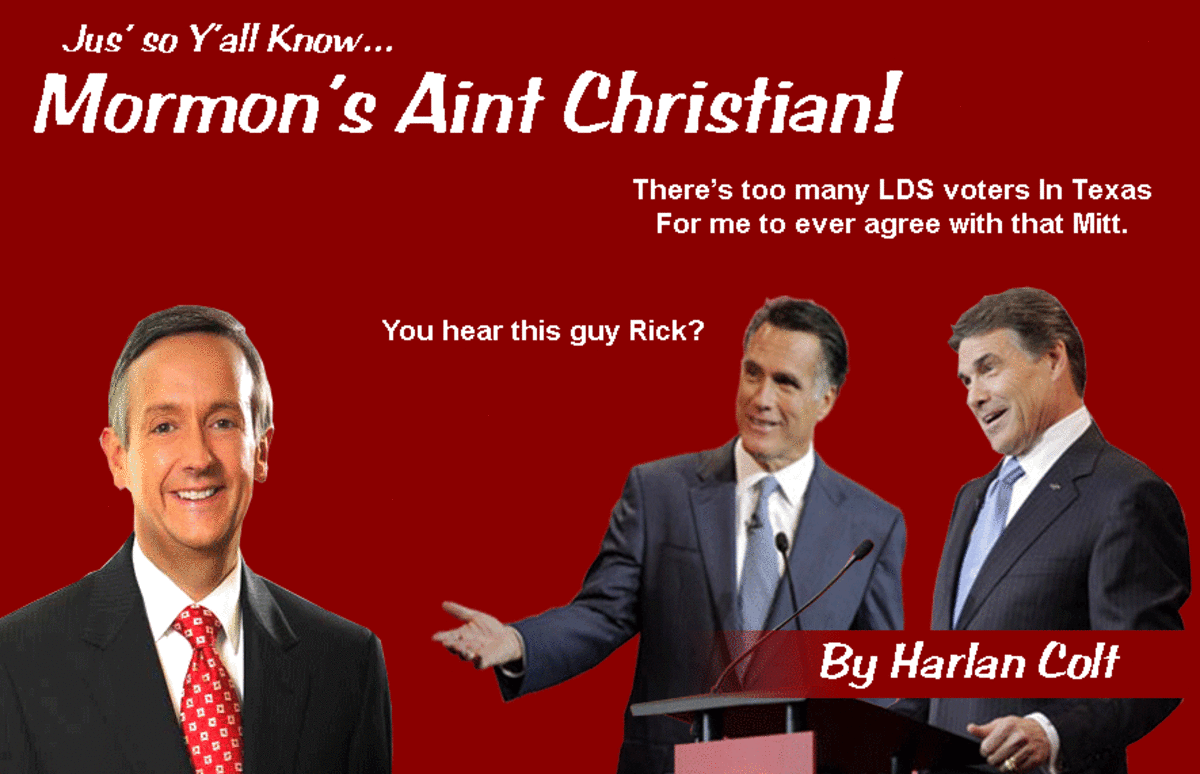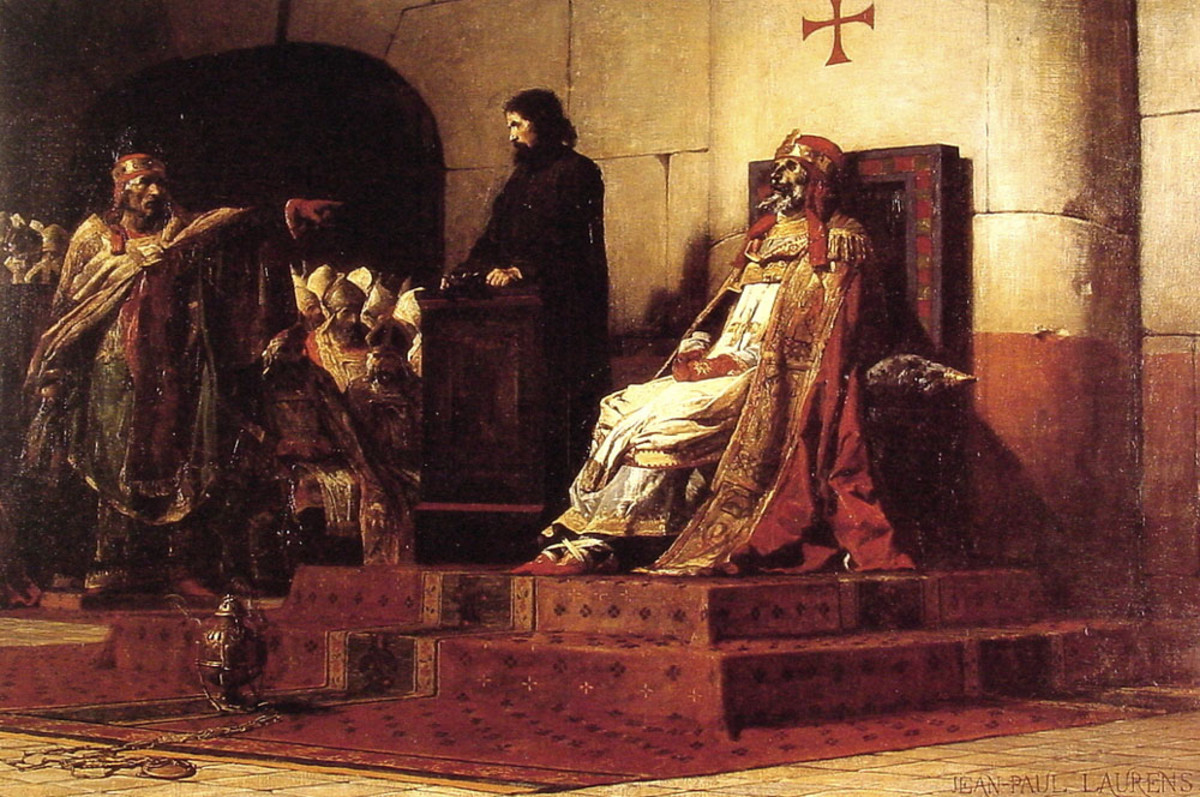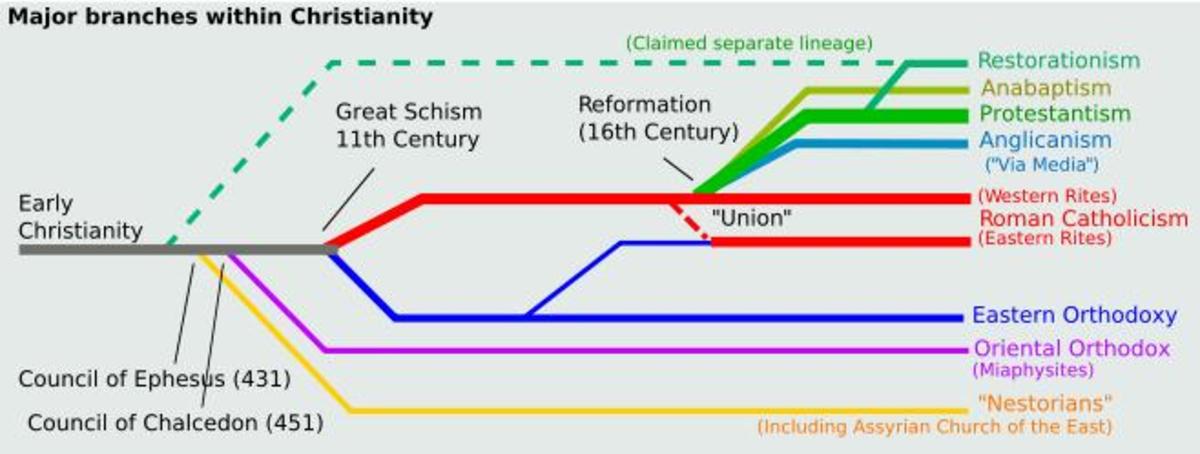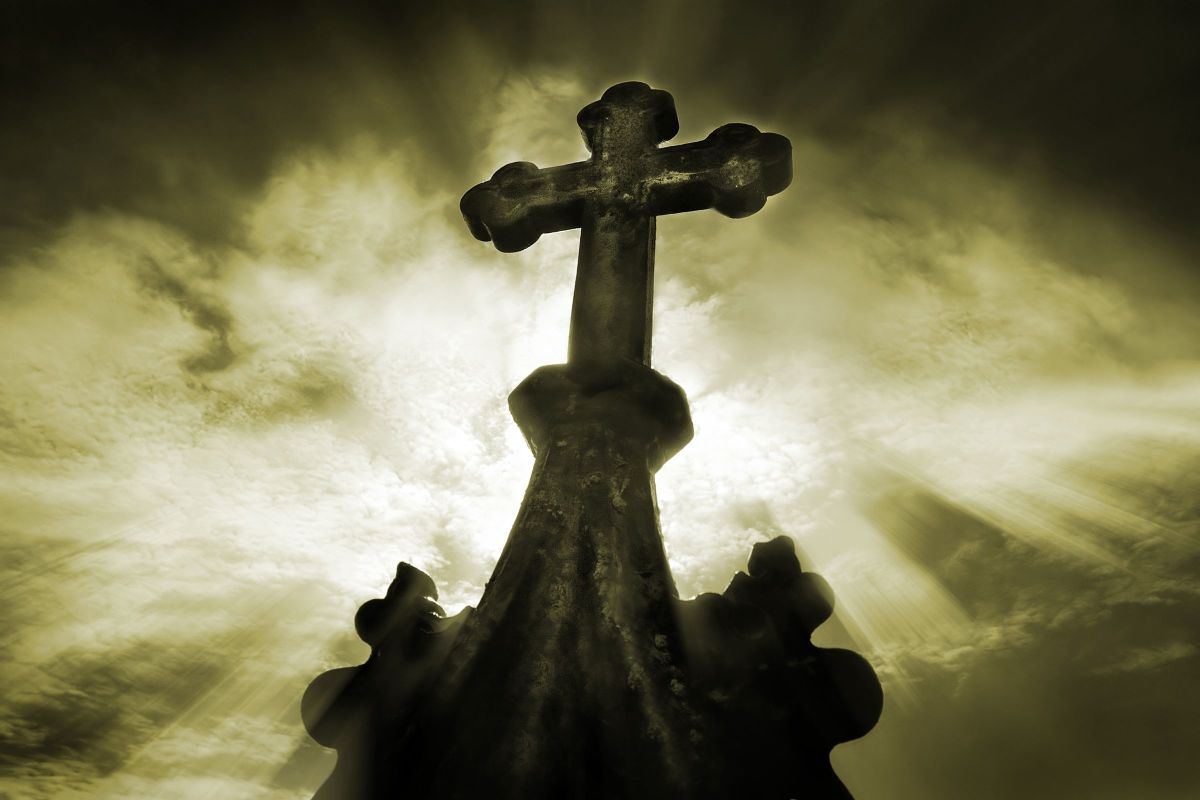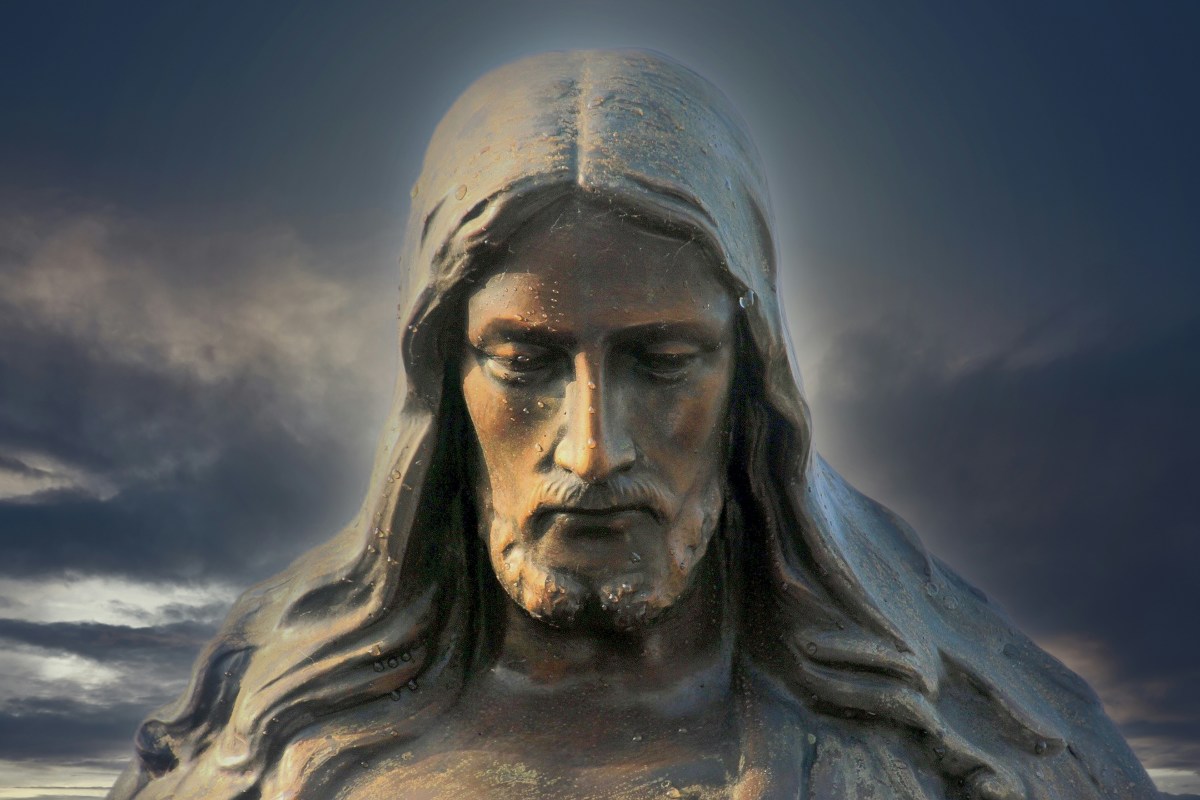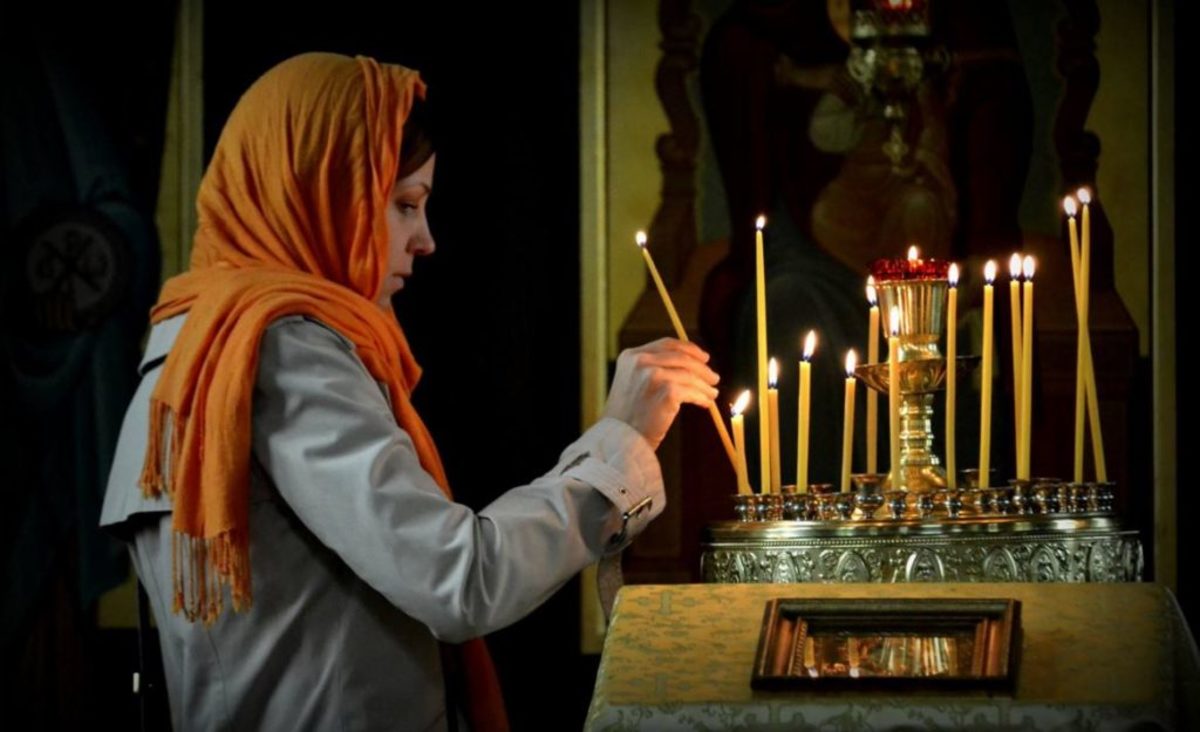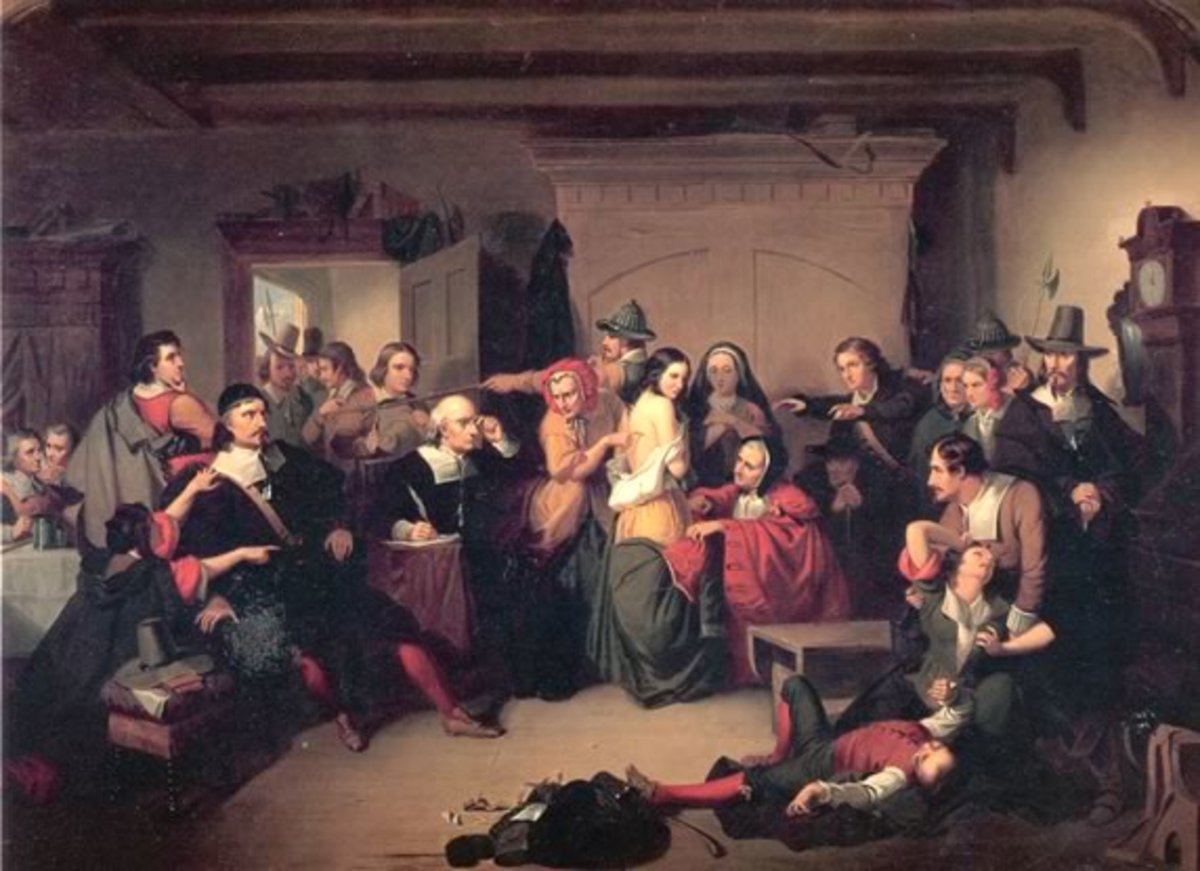History of Non Catholic/Protestant Evangelical Church movement.
Conflicts in Terminology
Today there is much controversy among the learned men of the Church over certain terms. Terminology that at times Infuriates and exasperates us in our attempts to understand History and to know who and what is the Church that Jesus truly founded... and what (or who) is Not.
Christian Martyrs 1
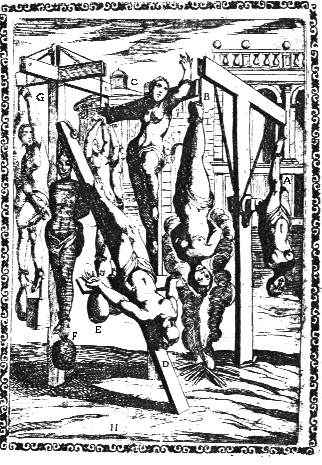
Analysis of Terms
1. Christians: Christ like or followers of Christ…Acts 11:26 And when he had found him, he brought him unto Antioch. And it came to pass, that a whole year they assembled themselves with the church, and taught much people. And the disciples were called Christians first in Antioch.
It is very probable that Saul and Barnabas were the first to call the flock by this name (do a word study on it or see Adam Clarks commentary)… although many people believe that it was the people of Antioch who gave them the name.
2. Baptist : Originaly the term Ana-Baptist (re-baptizer) was applied as a derogatory slander... an accusation of a person or group of people who did not accept the baptism of Infants or of people who were not capable of Understanding the Gospel... These people of necessity were Re- Baptized... so those people who had either been re-baptized or who performed the second Baptism were titled Ana-Baptists.
While the name Ana-Baptist itself is first noticed in most peoples articles around the early 1500’s the doctrines adhered to by those people and with the same type beliefs goes back much further.
The word has its roots also in Immersion which is still the sole method accepted for Baptism by most Baptists today. It is argued that those who do not carry strong beliefs on how the act of Baptism is performed are either “Liberal” or just outright “ Impostors” and somewhat less than true Baptists in their beliefs.
The Broader term usage of Baptist however can include anyone and any Church that follows the Doctrines and Distinctives that are generally recognized as Baptist... Regardless of what name happens to be on the sign out front. I know of several Churches of various denominations that could be called "Mostly Baptist" in their beliefs... even though they carry names like "Methodist", "Presbyterian", Pentecostal or "Congregational" etc.
3. Bride: The Bride of Christ… the Church which is bought with the Blood of the saviour..
4. Brider: A brider is a person who believes his or her church is “The” Church… or more specifically... "the Only Church that Jesus is returning for at the Rapture…" and although there are variations on this theme, Usually the concept of a more universal body of Christians is denied to make way for their “Us Onlyism” beliefs and Mentality. This does not have to be a Baptist church mind you... but any church with Brider like beliefs. There are Brider Churches by many names but the most common usage is that of "Baptist Brider."
5. "Baptist Bride" or "Baptist Brider": Any Baptist Church member which exhibits the Brider Mentality would be called a Baptist Brider. Usualy the term is used in a derogatory manor. And Many times it is used as a Straw Man accusation so that the persons actual beliefs can be avoided.. Its easier to debate a straw man than to deal with a persons real beliefs which are founded in the Bible and can be defended easily with scripture. The Staw Man however can be defeated with philosophy and reasoning with Logic... apart from scripture.
Analysis of Terms
6. Apostolic succession: The belief that a church has descended directly from the apostles.
Wikipedia states this...
Baptist successionists have, at times, pointed to 16th century Anabaptists as part of anapostolic succession of churches ("church perpetuity") from the time of Christ
The opponents of this theory emphasize that these non-Catholic groups clearly differed from each other, that they held some heretical views (that is, heretical even by baptist standards, such as the Adoptionism of the Paulicianists; some of the other groups often cited were in fact little different from the Catholics and not at all similar to the Baptists), are not successors of the Apostles, or that they had no connection with one another with origins that are separate both in time and place. This view is held by some Baptists, some Mennonites, and a number of "true church" movements.[7] Somewhat related to this is the theory that the Anabaptists are of Waldensian origin. Some hold the idea that the Waldenses are part of the apostolic succession, while others simply believe they were an independent group out of whom the Anabaptists arose. Estep asserts "the Waldenses disappeared in Switzerland a century before the rise of the Anabaptist movement." Ludwig Keller, Thomas M. Lindsay, H. C. Vedder, Delbert Grätz, John T. Christian and Thieleman J. van Braght all held, in varying degrees, the position that the Anabaptists were of Waldensian origin.
The Proponents of this theory have historical Statements and records that their Opponents try to overlook and bury with contention... and the debate goes on.
7. Non Catholic Protestant Evangelical Church: This term and "NCPE" will be used in this article as a Broader Category of Churches that have many of the same Doctrinal Attributes and Origins. While many of these Churches today are openly called Baptist, there are many that are called by other names but still cling to the important beliefs that we Baptists call "Baptist Beliefs" or "Baptist Distinctive's". It is important in this article not to get overly picky about who and what is or is not in this category of NCPE.
Terms
8. Ecumenical (Wikipedia) Ecumenism (or oecumenism) mainly refers to initiatives aimed at greater Christian unity or cooperation. It is used predominantly by and with reference to Christian denominations and Christian Churches separated by doctrine, history, and practice. Within this particular context, the term ecumenism refers to the idea of a Christian unity in the literal meaning: that there should be a single Christian Church....The ecumenical vision comprises both the search for the visible unity of the Church (Ephesians 4.3) and the 'whole inhabited earth' (Matthew 24.14) as the concern of all Christians. In Christianity the qualification ecumenical is originally (and still) used in terms such as "Ecumenical council" and "Ecumenical patriarch" in the meaning of pertaining to the totality of the larger Church (such as the Catholic Church or the Orthodox Church) rather than being restricted to one of its constituent churches or dioceses. Used in this original sense, the term carries no connotation of re-uniting the historically separated Christian denominations.
Ecumenism today usually centers around a concept of reconciliation between Protestant Churches and their "Parent Church Organization" (which is most often the Roman Catholic Institution.)
It should be noted that one of the core reasons Baptist are against Eccumenism today is that they do NOT RECOGNIZE the Roman Catholic Institution as their Parent Church Organization in any way shape form or fashion. Rather... there is a long standing and perpetuated memory of that organization conducting systematic campaigns designed to erradicate all Churches which did not bow to the Roman Catholic Church and its Self Appointed Authority.
Baptists have long denied the Papal authority and promoted "Sola Scriptura" as our Only Recognized Authority.. This, by God's working in us through his Holy Spirit and His Word that is in-grafted in us. and by a long standing belief of Christs importance in guiding our lives... this ideology was best summed up in the words of early North Americans in the fight for independence from Great Britain... In the face of tyranny and injustice... the cry was heard on the battlefield... "No King but Jesus!!!"
Galatians 3: 27 For as many of you as have been baptized into Christ have put on Christ.
28 There is neither Jew nor Greek, there is neither bond nor free, there is neither male nor female: for ye are all one in Christ Jesus.
29 And if ye be Christ's, then are ye Abraham's seed, and heirs according to the promise.
(KJV)
Baptist Perpetuity
In the Process of the debate on Baptist Perpetuity there is a great injustice being perpetuated against both Christ who died for his church and also against both the Bride Herself and the Holy Spirit whose job it is to prepare her for the wedding day.
I submit to you that there is a Bride… because the bible states that there is…(John 3:29 and Revelations Chapters 21-22) Even if the terms are used figuratively or allegorically, we still must acknowledge that there truly is a Bride concept being referenced and demonstrated and that those of us who are saved make up one small part of the Bride as a whole. If not Presently… then certainly at a date in the not so distant future when the “Bride” herself is presented to her Groom.
The question remains, and the answers to be discovered as to; Who or what then, is the Bride of Christ?
In Ephesians 5 we see the marriage between a man and a woman as an allegory to Christ and his Church... We see marriage as a picture of what is to come... Granted that Paul was using this allegory in a reverse direction.. He was using the Marital Relationship of Jesus Christ to His Bride the Church for an example to humanly husbands and wives in their humanly marital relations.
It should be noted that in doing so we may see that the Bride has already been purchased and we are that Bride.... if we be in Christ.
"If you're saved, you'll be welcome at the wedding. But if you're saved and in His church, you'll be in the Bride." -Mickey Carter
Wikipedia Commons says:
Ephesians 5:1-21
The central theme of the whole Ephesians letter is reconciliation of the alienated within the unity of the church.[1]Ephesians 5begins by calling on Christians to imitate God and Christ, who gave himself up for us with love.[5:2]Ephesians 5:1-21 contains a rather strong warning against foolishness and letting down one's guard against evil. Rather, the author encourages the readers to constantly give thanks with song in their hearts because of what God has done for all of us in Christ. That prelude to the subject's text takes up again the theme of loving submission that began with the example of Christ in 5:2 where all are called upon to "Be submissive to one another out of reverence for Christ." 5:21
One of the seven angels...came and said to me, "Come, I will show you the bride, the wife of the Lamb." And he carried me away in the Spirit to a mountain great and high, and showed me the HolyCity, Jerusalem, coming down out of heaven from God.[Rev. 21:9-10]
It implies, but is not specific, that the "Bride" is the body of believers that comprise the universal Christian Ekklēsia (Church) (lit. "called-out ones"). In that verse the "New Jerusalem" is explicitly "the bride, the wife of the Lamb," almost universally considered to refer to Christ and his church.[2] It illustrates the closeness of Christ's relationship with his followers, and the depth of love and service that he holds for the Church as the body of believers. They are variously described in the New Testament as the ekklēsia (meaning "church"), the body of Christ, the koinōnia of the Spirit, flock, Israel of God, elect race, royal priesthood, holy nation, God's own people, temple of God, and seed of Abraham.
We live in a day and age of Propaganda... Many times throughout the day a perceptive individual with even a small amount of discernment will find himself stopping and analyzing the things he is hearing and seeing... asking himself a question like "Wait a moment... Is this the truth? Because it sounds fishy!" Such is the case with much that has been taught for Church History over the last 500 years or so. To be more specific. The propaganda game came into its own full bloom, with conflicts between the Catholic and Protestant Churches circa 1400-1700's and in fact to a great extent even until now in our age...
One of the keys to understanding history is to understand that Propaganda is ALWAYS PRESENT. Propaganda many times is the telling of history in a way that makes ones own cause look good or ones enemy look more Evil in an attempt to steal the hearts of the hearers.
To find the real story it is often necessary to wade through a pile of information given by both sides of the issue and look for the things that both sides agree on.
You may also verify truth sometimes by watching what is confessed in one area of the world or around one crowd of people but denied in another place or to other peoples...
Often times the searcher of truth in Historical issues is facing just this sort of detective work. Sifting through the known histories and stories that have survived in spite of every recent effort to quell or redefine the truth, and sometimes finding little Gemstones of Pure History sometimes even in the spaces between the lines of written history.
One such Historical question that needs to be examined is the Origins of the Non-Catholic-Protestant Evangelical Churches.
In his book "The Trail of Blood", Dr Jim Carrol did an admirable job showing the succession of churches that originated before the Roman Catholic institution and existed in dispersed times and places through the entire time from Christ unto our present age.. Several problems however surfaced before the dust had time to settle...
First is that he hurt some peoples feelings...
Catholics want to believe not only that they are part of the Church that Jesus started.. (and claim Peter as the First Pope) But that they ARE THAT CHURCH.... Therefore the Catholic Church has spent much time and effort trying to eliminate and exterminate any and all competition to itself. Over 53 Million people have been killed for disagreeing with the Roman Catholic Institution... Many of those people were called by names like: Paulicians, Ana-Baptists, Waldensian,Baptists, Arnoldist etc.
Protestants also want to believe that they are a part of Christ's Church... and since they mostly trace their lineage from Rome... They have a problem with the idea that Another church might exist simultaneously OUTSIDE of Rome.
The Idea of another Church Lineage... a NON-Catholic lineage is very troubling to Both Catholics and Protestants alike... (More on why later)
Most Schools of Higher Learning and Especially Seminaries... are controlled by and taught by Either: Jesuit Priests, or those who learned from Jesuit Priests... Or by Protestant Theologians who studied under them.
Those who learn from Catholics and Protestants will find themselves believing the "History of the Church" is Only inside the Catholic institution for 1200 years between 320AD and 1520 AD. But this could not be further from the truth.
"The institution of Anabaptism is no novelty, but for 1300 years has caused great disturbance in the church..." Ulrich Zwingli, Swiss Reformer (1484-1531)
"Baptists maintain that they existed before the Catholic apostasy took place; that they existed alongside Catholicism after her formation; and that they existed apart from Catholicism." Sir Isaac Newton, English scientist, historian
Historical Quotes about Ana-Baptists
Here are some more very important Historical quotes from a book on Church history called "The trail of Blood" by Dr. Jim Carrol:
Their history is written in the legal documents and papers of those ages. It is through these records that the "TRAIL OF BLOOD" winds its way as you find such statements--
"At Zurich, after many disputations between Zuinglius and the Ana-Baptists, the Senate made an Act, that if any presume to re-baptize those who were baptized before (i.e. as infants) they should be drowned. At Vienna many Ana-Baptists were tied together in chains that one drew the other after him into the river, wherein they were all suffocated (drowned)." (Vida Supra, p. 61)
"In the year of our Lord 1539 two Ana-Baptists were burned beyond Southwark, and a little before them 5 Dutch Ana-Baptists were burned in Smithfield," (Fuller, Church History.)
"In 1160 a company of Paulicians (Baptists) entered Oxford. Henry II ordered them to be branded on the forehead with hot irons, publicly whipped them through the streets of the city, to have their garments cut short at the girdles, and be turned into the open country. The villages were not to afford them any shelter or food and they perished a lingering death from cold and hunger." (Moore, Earlier and Later Nonconformity in Oxford, p. 12.)
The old Chronicler Stowe, A.D. 1533, relates:
"The 25th of May--in St. Paul's Church, London--examined 19 men and 6 women. Fourteen of them were condemned; a man and a woman were burned at Smithfield, the other twelve of them were sent to towns there to be burned."
Froude, the English historian, says of these Ana-Baptist martyrs--
"The details are all gone, their names are gone. Scarcely the facts seem worth mentioning. For them no Europe was agitated, no court was ordered in mourning, no papal hearts trembled with indignation. At their death the world looked on complacent, indifferent or exulting. Yet here, out of 25 poor men and women were found 14, who by no terror of stake or torture could be tempted to say they believed what they did not believe. History has for them no word of praise, yet they, too, were not giving their blood in vain. Their lives might have been as useless as the lives of most of us. In their death they assisted to pay the purchase of English freedom."
Likewise, in writings of their enemies as well as friends, Dr. Carroll found, their history and that their trail through the ages was indeed bloody:
Cardinal Hosius (Catholic, 1524), President of the Council of Trent:
"Were it not that the baptists have been grievously tormented and cut off with the knife during the past twelve hundred years, they would swarm in greater number than all the Reformers." (Hosius, Letters, Apud Opera, pp. 112, 113.)
The "twelve hundred years" were the years preceding the Reformation in which Rome persecuted Baptists with the most cruel persecution thinkable.
Sir Isaac Newton:
"The Baptists are the only body of known Christians that have never symbolized with Rome."
Mosheim (Lutheran):
"Before the rise of Luther and Calvin, there lay secreted in almost all the countries of Europe persons who adhered tenaciously to the principles of modern Dutch Baptists."
Edinburg Cyclopedia (Presbyterian):
"It must have already occurred to our readers that the Baptists are the same sect of Christians that were formerly described as Ana-Baptists. Indeed this seems to have been their leading principle from the time of Tertullian to the present time."
(Tertullian was born just fifty years after the death of the Apostle John.)
With these Historical quotes fresh in our memory... and the Knowledge that there has always been men and women who held to beliefs that are most commonly are referred to as "Baptistic Beliefs" let us now examine what those beliefs are... and also understand why Baptists stay separate from Rome like Oil tries to separate from Water.
BAPTIST Beliefs in a nutshell
Baptist Beliefs Include: (B.A.P.T.I.S.T. Acronym)
Biblical Authority or Authority of the Scriptures (Sola-Scriptura=Bible alone) for all matters of doctrine) Mat 24:35; 1Pet 1:23; 2Tim 3:16-17
Autonomy of the local church (Mat 18:15-17; 1Cor 6:1-3)
Priesthood of all believers (1Pet 2:5-9; 1Tim 5)
Two ordinances (believer's baptism and the Lord's Supper) (Acts 2:41-47; 1Cor 11:23-32)
Individual soul liberty (Rom 14:5-12)
Separation of Church and State (Mat 22:15-22)
Two offices of the church (pastor and deacon) (1Tim 3:1-13; Tit 1-2)
Most Baptist traditions believe in the "Four Freedoms" articulated by Baptist historian Walter B. Shurden:[2]
Soul freedom: the soul is competent before God, and capable of making decisions in matters of faith without coercion or compulsion by any larger religious or civil body
Church freedom: freedom of the local church from outside interference, whether government or civilian (subject only to the law where it does not interfere with the religious teachings and practices of the church)
Bible freedom: the individual is free to interpret the Bible for himself or herself, using the best tools of scholarship and biblical study available to the individual
Religious freedom: the individual is free to choose whether to practice their religion, another religion, or no religion; Separation of church and state is often called the "civil corollary" of religious freedom (Source Wikipedia Commons)
It should be noted that Not all of these "Baptist Distinctive's" need to be present in all Baptist Churches and in fact many Baptist Churches have beliefs that vary to a certain extent from place to place and time to time... This is due to the individual Congregations and Pastors having AUTONOMY... and no central Church Government or Hiarchy.
A Church could be considered in my view a "Non-Catholic Protestant Evangelical Church" or a "Baptist Church" even though the sign out front may say something entirely different.
What we are looking at through history as Non-Catholic-Protestant Evangelical Churches is defined by the Doctrines that were followed... Doctrines which in our study today is more important than what name they were called by Historically.
It is the Doctrinal Similarities that are the Connection of these Churches instead of a Centralized Government.
Two of the most important traits or beliefs that we may view as NCPEC today is whether or not they Believed in "Believers Only Baptism" and were willing to die for their faith in Christ.
In my next article: The History of Non Catholic/Protestant Evangelical Churches Part 3 we will be examining "The Sacred Cow".

